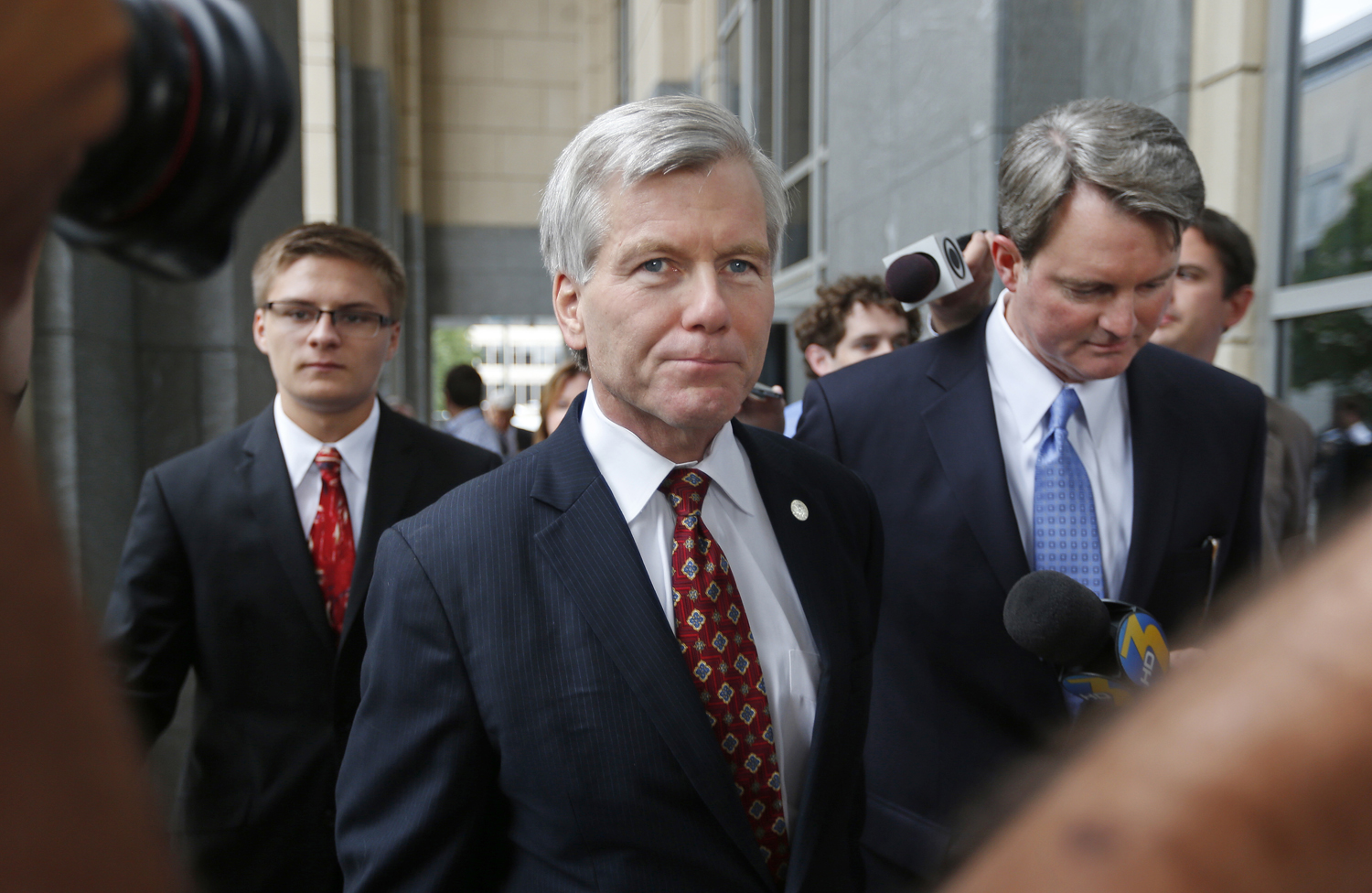There are numerous media reports today that the U.S. Attorney’s Office for the Eastern District of Virginia is recommending to the Department of Justice that Bob McDonnell be re-indicted.
According to the Washington Post, the final decision appears to rest with Attorney General Loretta Lynch, who was asked in an interview earlier this week whether she would accept the recommendation of prosecutors who handled the case. In her response, Lynch said the recommendation is “working its way through the process, so I’m not able to give you a comment on that.” I presume from this cryptic statement she is responsible for making the final decision.
The McDonnell case is presently before the 4th Circuit Court of Appeals. Prosecutors have until September 19, 2016 to inform the court if they are going to recommend re-indictment or not. When the Supreme Court unanimously vacated Bob McDonnell’s conviction on June 27, 2016, it sent the case back to the 4th Circuit specifically laying out the standard for an “official act” that the Court of Appeals must use in determining whether McDonnell should be tried again, stating,
[I]f the court below determines that there is sufficient evidence for a jury to convict Governor McDonnell of committing or agreeing to commit an ‘official act’ his case may be set for a new trial. If the court instead determines that the evidence is insufficient, the charges against him must be dismissed. We express no view on that question.”
Opinion at p. 28.
In issuing the opinion, the Supreme Court justices specifically cut the legs out from under the DOJ’s previous factual arguments regarding what constitutes an “official act” that would violate the Federal Honest Services Fraud Act and Hobbs Act. The Supreme Court justices appeared to be saying to the DOJ that they don’t want to see these factual allegations being used again. To wit:
Setting up a meeting, hosting an event, or calling an official (or agreeing to do so) merely to talk about a research study or to gather additional information, however, does not qualify as a decision or action on the pending question of whether to initiate the study. Simply expressing support for the research study at a meeting, event, or call—or sending a subordinate to such a meeting, event, or call—similarly does not qualify as a decision or action on the study, as long as the public official does not intend to exert pressure on another official or provide advice, knowing or intending such advice to form the basis for an ‘official act.’ Otherwise, if every action somehow related to the research study were an ‘official act,’ the requirement that the public official make a decision or take an action on that study, or agree to do so, would be meaningless.”
Opinion at p. 20.
In light of the severe restrictions imposed by the Supreme Court, I find it astonishing—and incredibly vindictive—that the U.S. Attorney is recommending re-indictment. They can’t use their previous factual theory as to what constitutes an “official act.” Do they have new allegations? No.
I am hoping that if Lynch gives the green light to re-indict (who knows what she will do), the 4th Circuit will put an end to this travesty and let the McDonnells get on with their lives.

